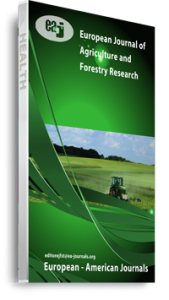This paper reports on farmers’ perceptions and the socio-economic importance of Chrysophyllum albidum in two agroecological zones of Edo state, Nigeria. From both zones, ninety (90) household where the fruit trees are produced on a commercial basis were selected through multistage random sampling technique. The data was obtained through a structured questionnaire, interview and focused group discussion with farmers, consumers and sellers of this fruit tree. The data obtained was subjected to descriptive analysis such as frequency, mode and percentages. Findings from the results revealed the economic importance of the species to the people, the desired characteristics of the fruits, the problems associated with the species and evidence of domestication in C. albidum trees especially in the rainforest zone. C. albidum fruit tree is economically important in both agroecological zones and contributes to the sustenance of livelihood of the rural populace. Furthermore, the size of C. albidum fruit and the taste influences the price of the fruit. Thus, Extension services could help farmers obtain greater benefits from this resource by promoting participatory domestication and advice on tree management.
Keywords: Agroecological Zone, Chrysophyllum Albidum, Livelihood, Participatory Domestication, Socio-Economic Importance

